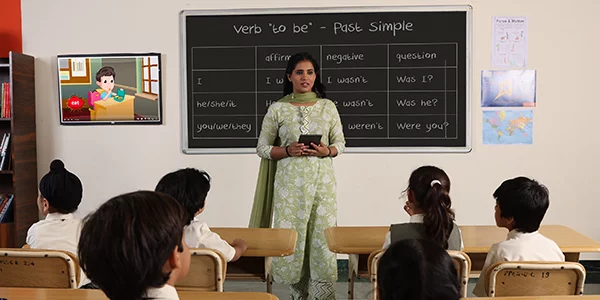Checking Out the Various Mentor Strategies in Main Scientific Research Education Today
Inquiry-based understanding, hands-on experiments, and the combination of innovation are redefining just how instructors engage young minds. Additionally, collaborative approaches and distinguished instruction are being employed to provide to the diverse requirements of students, improving both engagement and understanding.
Inquiry-Based Knowing
Inquiry-Based Discovering (IBL) is an instructional strategy that encourages students to explore scientific concepts via doubting, investigation, and hands-on testing. This approach highlights the role of students as energetic individuals in their discovering, promoting vital thinking and analytical skills. By engaging with real-world inquiries, students come to be inspired and interested, which improves their understanding of scientific principles.
In IBL, educators work as facilitators, leading students as they navigate their queries instead of supplying information straight. This student-centered technique allows for differentiation, accommodating different discovering speeds and styles. Students establish abilities in developing hypotheses, developing experiments, and evaluating information, which are crucial for clinical proficiency.
Furthermore, IBL fosters collaboration among students, motivating them to share findings and ideas. This collective questions advertises social skills and a sense of community within the classroom. Moreover, the process of questions encourages resilience, as trainees find out to embrace failing as a stepping rock towards understanding.
Hands-On Experiments
Hands-on experiments are an important part of reliable scientific research education, enhancing the principles of inquiry-based discovering. These experiments enable trainees to involve directly with clinical concepts, promoting a much deeper understanding with experiential knowing. By adjusting materials and observing outcomes, young students can realize abstract concepts in tangible methods.
Such activities advertise crucial thinking and problem-solving abilities, as students hypothesize outcomes, conduct experiments, and evaluate results. This procedure motivates them to ask concerns, improve their understanding, and develop a clinical frame of mind. Hands-on experiments can be customized to varied knowing designs, ensuring that all pupils have the opportunity to involve meaningfully with the material.
Furthermore, hands-on experiments frequently urge collaboration amongst peers, promoting synergy and communication skills. Operating in teams enables trainees to share concepts, discuss findings, and find out from one an additional, which improves their total educational experience.
Incorporating hands-on experiments into the primary science curriculum not only improves the discovering setting however likewise grows a lifelong interest in scientific research. By proactively joining their education, trainees are most likely to develop a passion for clinical query that expands past the class.

Modern Technology Assimilation
Integrating modern technology into main scientific research education has actually ended up being progressively vital in cultivating trainee interaction and enhancing finding out end results. Using digital devices, such as interactive simulations, digital laboratories, and instructional software application, offers trainees with opportunities to discover clinical ideas in innovative ways. These sources assist in a much deeper understanding of intricate topics by allowing students to visualize and manipulate variables that would be impractical in a typical classroom setting.
Furthermore, modern technology combination urges personalized finding out experiences. Pupils can proceed at their own speed, revisiting challenging concepts via multimedia resources, which satisfy different understanding styles. This flexibility not just sustains specific growth yet additionally cultivates a feeling of autonomy in learners.
Additionally, technology acts as a bridge to real-world scientific research, linking students with present reference research and specialist payments. Access to on-line databases and clinical journals expands trainees' perspectives on scientific inquiry and fosters vital assuming skills.
Collaborative Discovering
Collaborative learning plays a crucial function in key science education by fostering team effort and interaction skills among students. This strategy encourages learners to collaborate, share knowledge, and engage in problem-solving, which enhances their understanding of clinical concepts. By taking part in team tasks, trainees find out to express their ideas, pay attention to varied perspectives, and work out remedies, every one of which are essential abilities in both real-world and academic contexts.

Study indicates that collective discovering can bring about increased motivation and interaction in scientific research subjects, as students discover satisfaction in shared experiences (primary science tuition Singapore). Furthermore, this strategy prepares trainees for future joint ventures, outfitting them with the abilities essential for reliable teamwork in college and expert settings. Ultimately, welcoming joint learning in primary scientific research education can dramatically improve the discovering experience and promote a deeper understanding of scientific query
Distinguished Direction

Separated click this link instruction can show up in numerous means, such as differing the web content, processes, or products of learning. For example, educators might make use of tiered assignments that provide differing levels of complexity, allowing trainees to function at their particular preparedness levels. Furthermore, flexible organizing approaches can help with partnership amongst trainees with various capabilities, fostering peer discovering.
Assessment plays a critical role in this strategy, as it informs instruction and helps teachers understand each student's special requirements. Developmental analyses, such as observations and tests, can guide instructors in adjusting their strategies to improve discovering outcomes. primary science tuition Singapore. Inevitably, by implementing differentiated direction in main science education and learning, instructors can grow a more effective and equitable learning atmosphere, equipping all trainees to reach their complete potential he said in comprehending scientific phenomena
Conclusion
In summary, the varied teaching techniques in primary scientific research education, including inquiry-based knowing, hands-on experiments, modern technology integration, joint learning, and distinguished direction, jointly add to a much more effective learning setting. These approaches advertise critical thinking, analytic abilities, and a deeper understanding of clinical principles. By executing these approaches, teachers can produce appealing and encouraging classrooms that deal with the diverse needs of pupils, eventually promoting a lifelong passion in scientific research and enhancing scholastic accomplishment.
Inquiry-Based Understanding (IBL) is a pedagogical method that encourages students to explore clinical concepts through wondering about, investigation, and hands-on experimentation.Joint knowing plays an essential function in key science education by promoting synergy and interaction abilities amongst students.Study shows that collaborative learning can lead to boosted inspiration and engagement in science topics, as trainees find pleasure in shared experiences.In promoting a comprehensive discovering environment, differentiated instruction arises as a key approach to fit the varied demands and abilities of trainees in primary scientific research education. Ultimately, by applying separated direction in key science education, teachers can grow a much more equitable and reliable discovering environment, empowering all students to reach their full capacity in comprehending clinical phenomena.
Comments on “Achieve Academic Success with Primary Science Tuition Singapore”